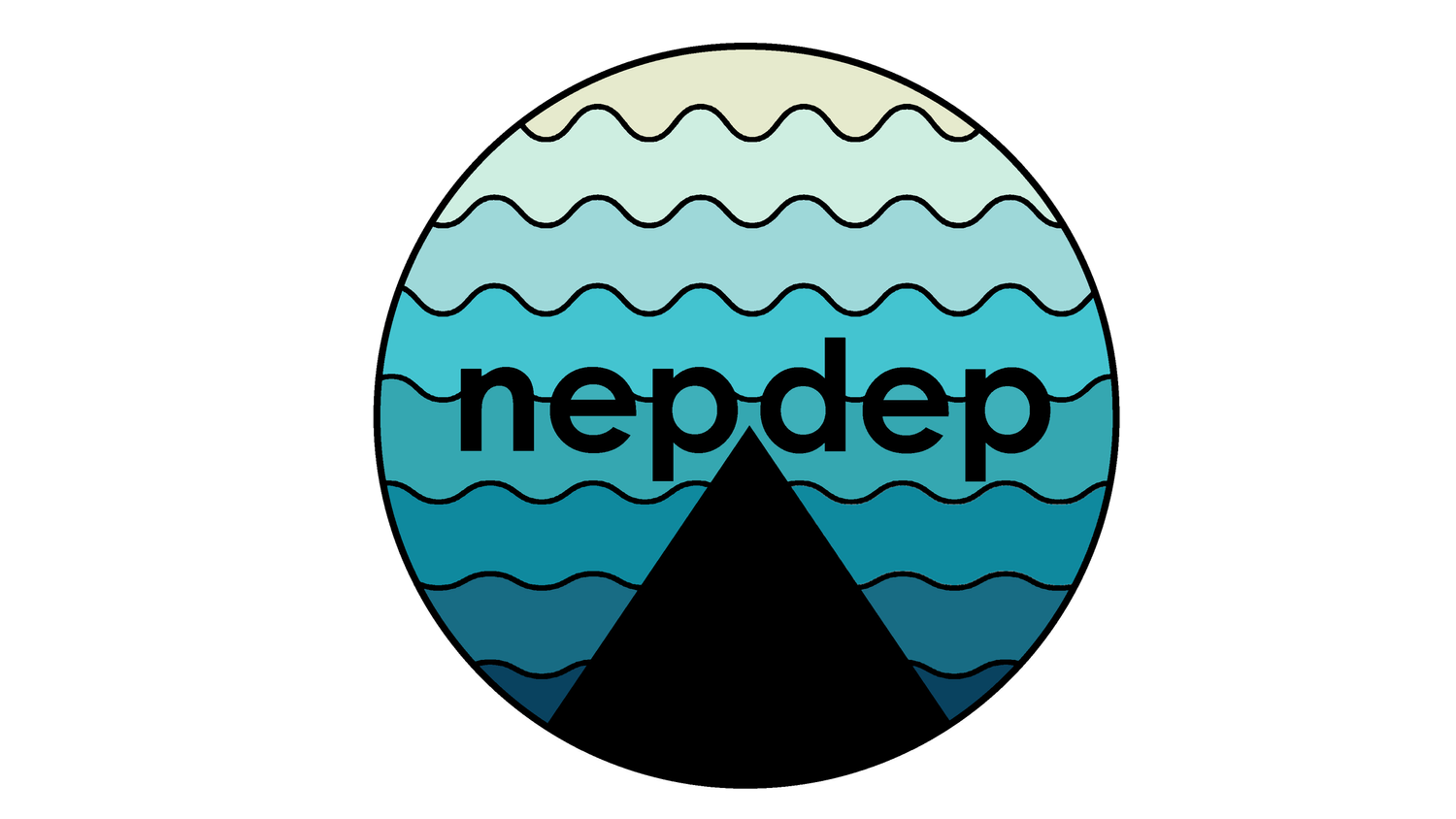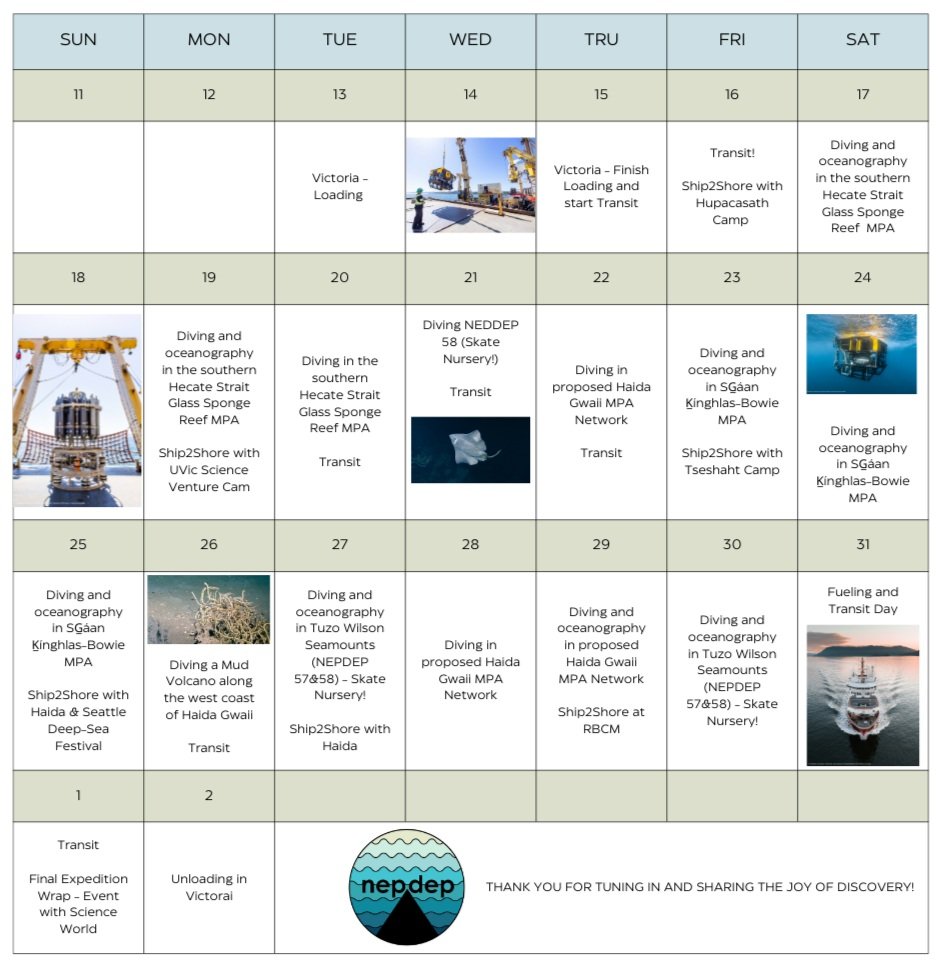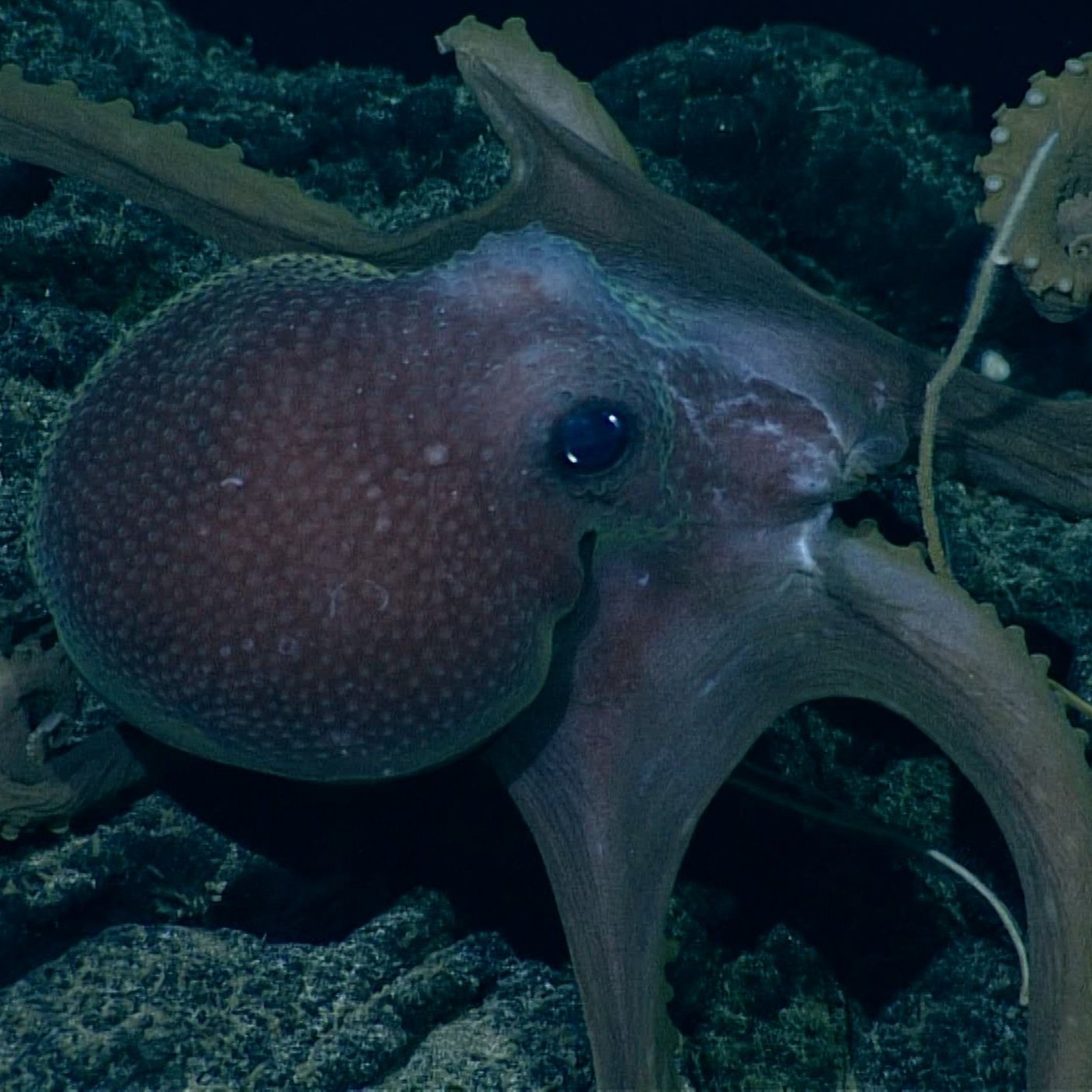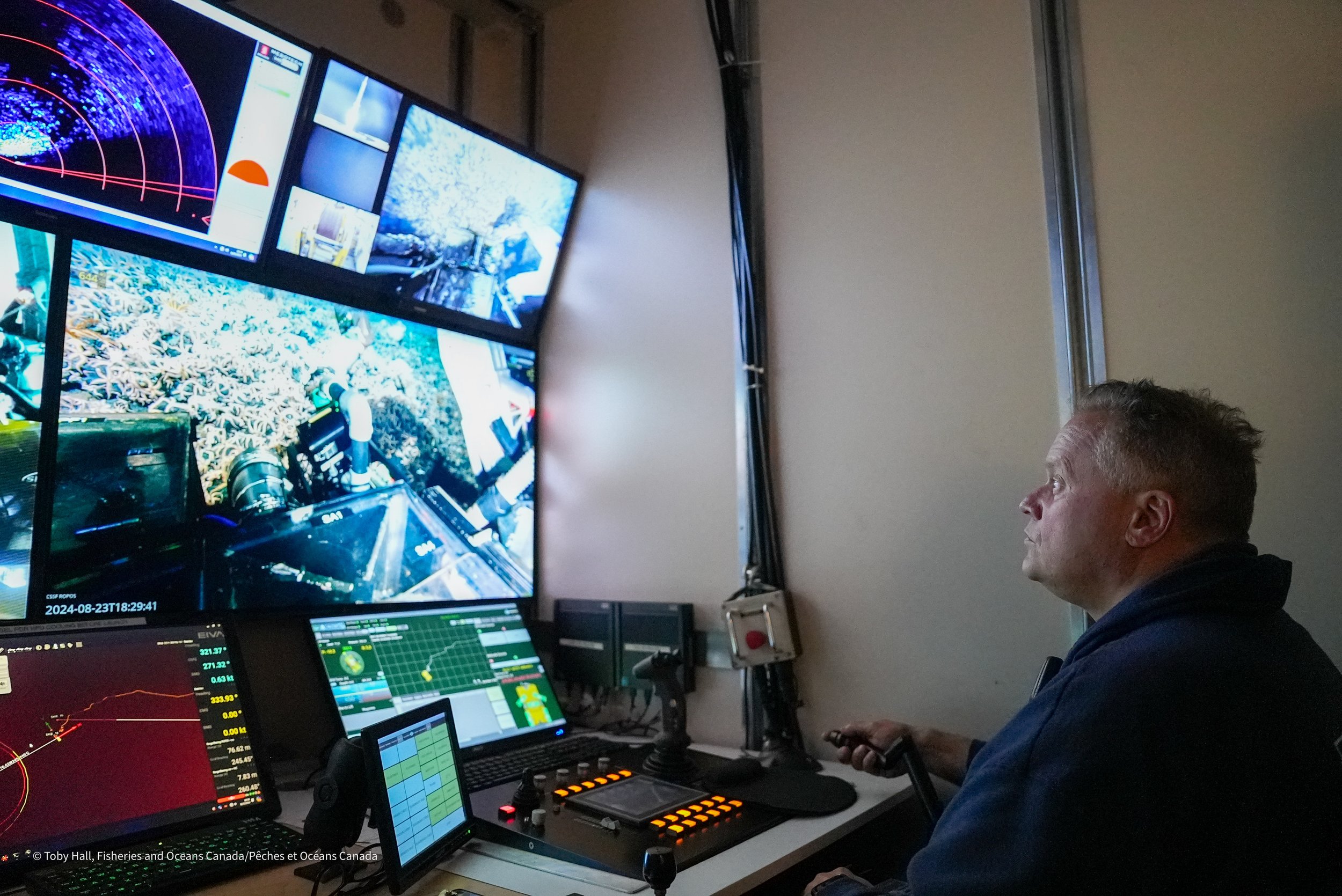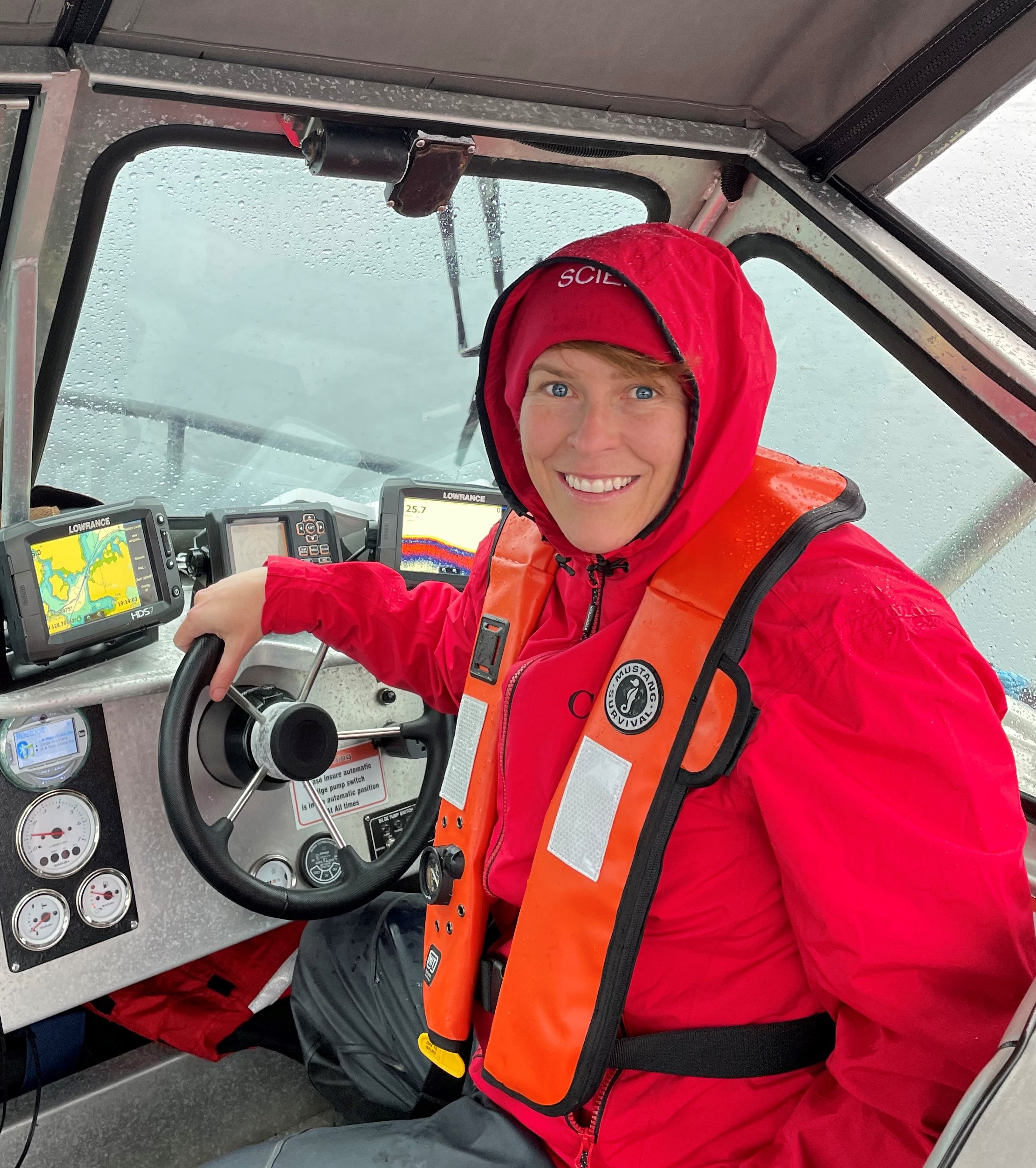2024 NEPDEP Expedition Wrap-up Video
We sailed Aug 13-Sept 2, 2024 on the Canadian Coast Guard Vessel J. P. Tully!
This expedition aimed to discover, explore, and monitor deep-sea ecosystems while sharing the joy of discovery of the incredible life and wonders hidden far below the waves! We visually explored the habitats and sampled the waters in and around Ecologically and Biologically Significant Areas (EBSAs) in existing, planned, and potential Marine Protected Areas (MPAs).
We used the remotely operated vehicle ROPOS to to conduct science and capture incredible imagery of the deep sea to share with YOU! Thank you for joining us on our journey of discovery.
Watch live here on dive days OR on our Facebook Page!
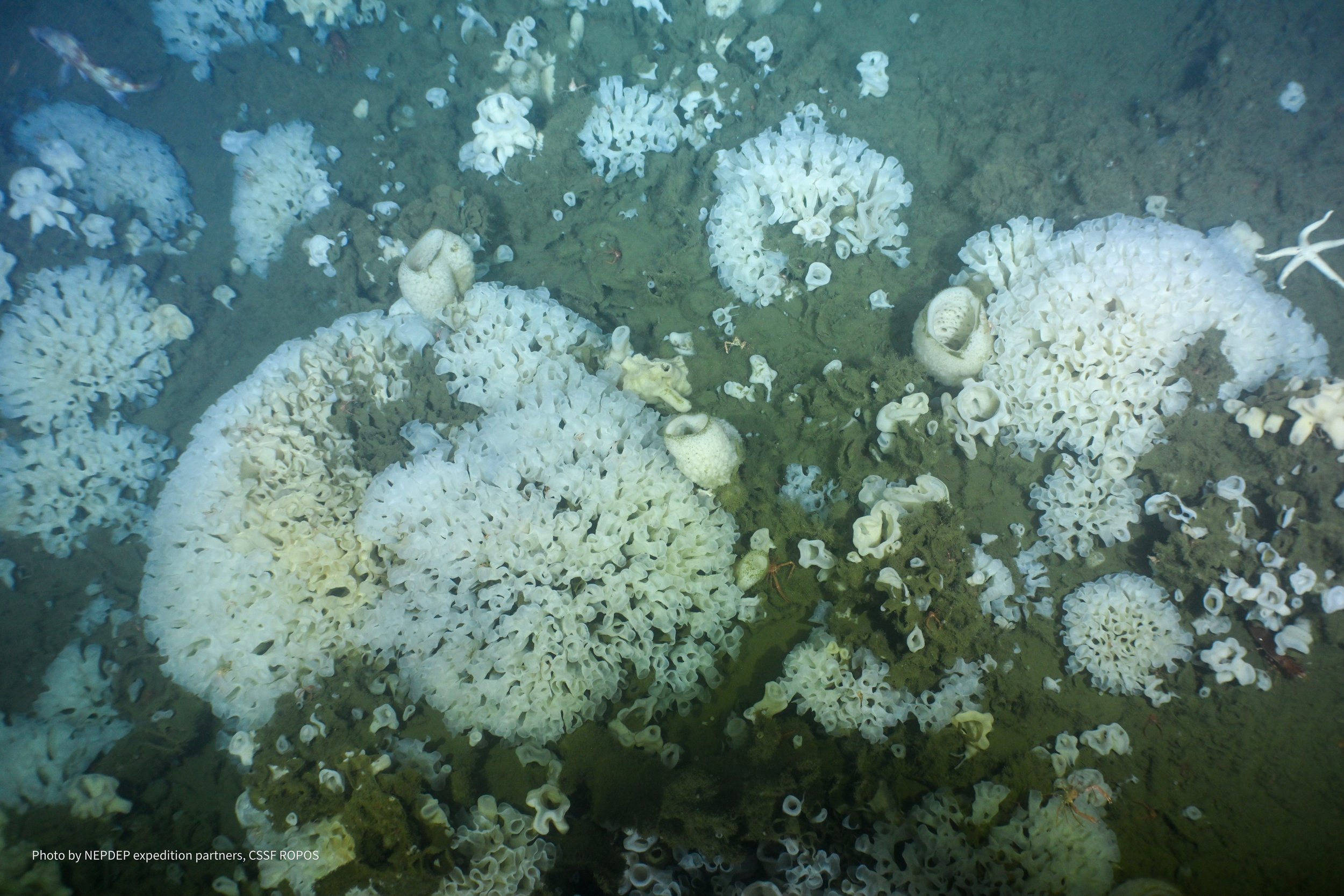
Hecate Strait/Queen Charlotte Sound Glass Sponge Reefs MPA
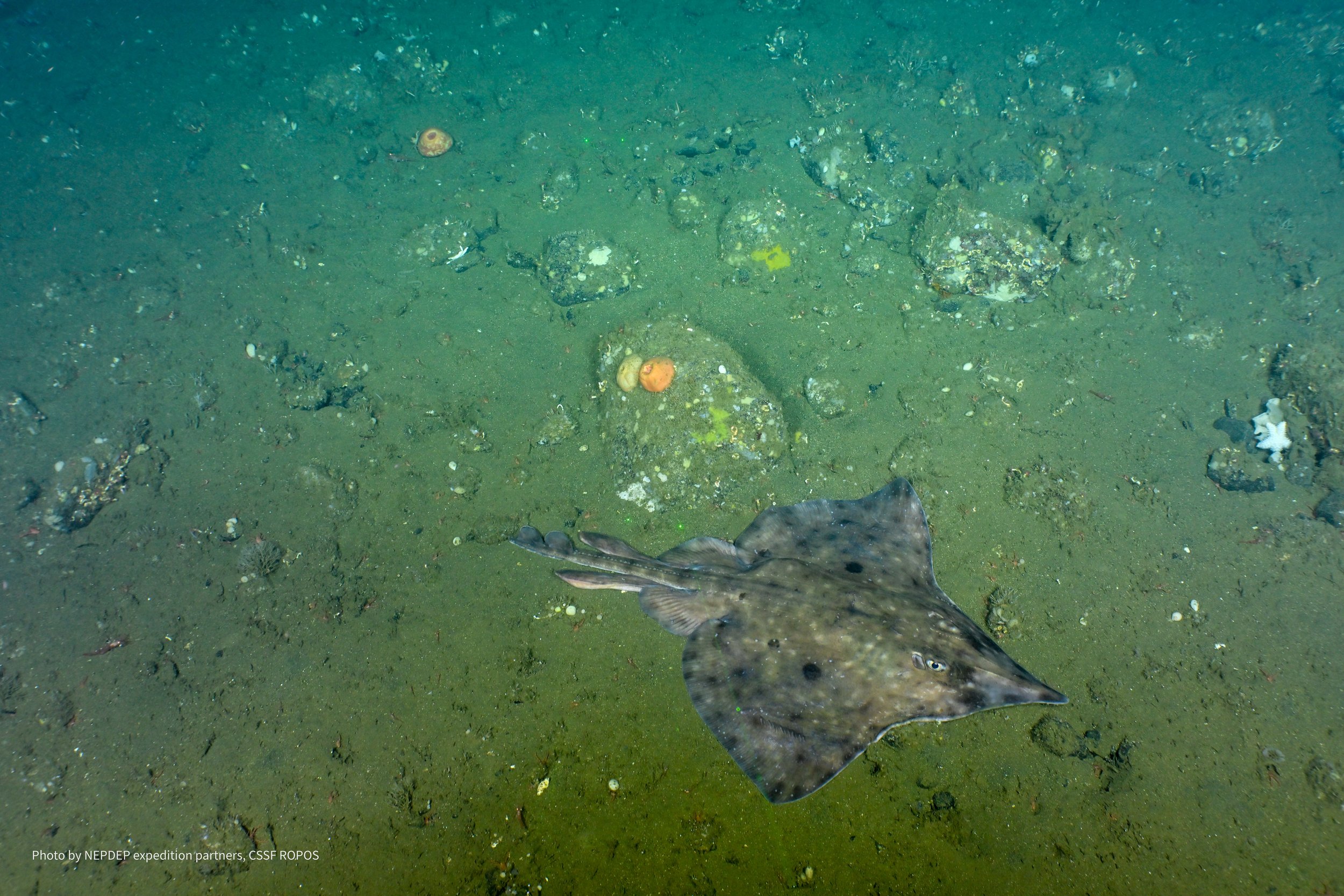
Proposed Haida Gwaii MPA Network Sites
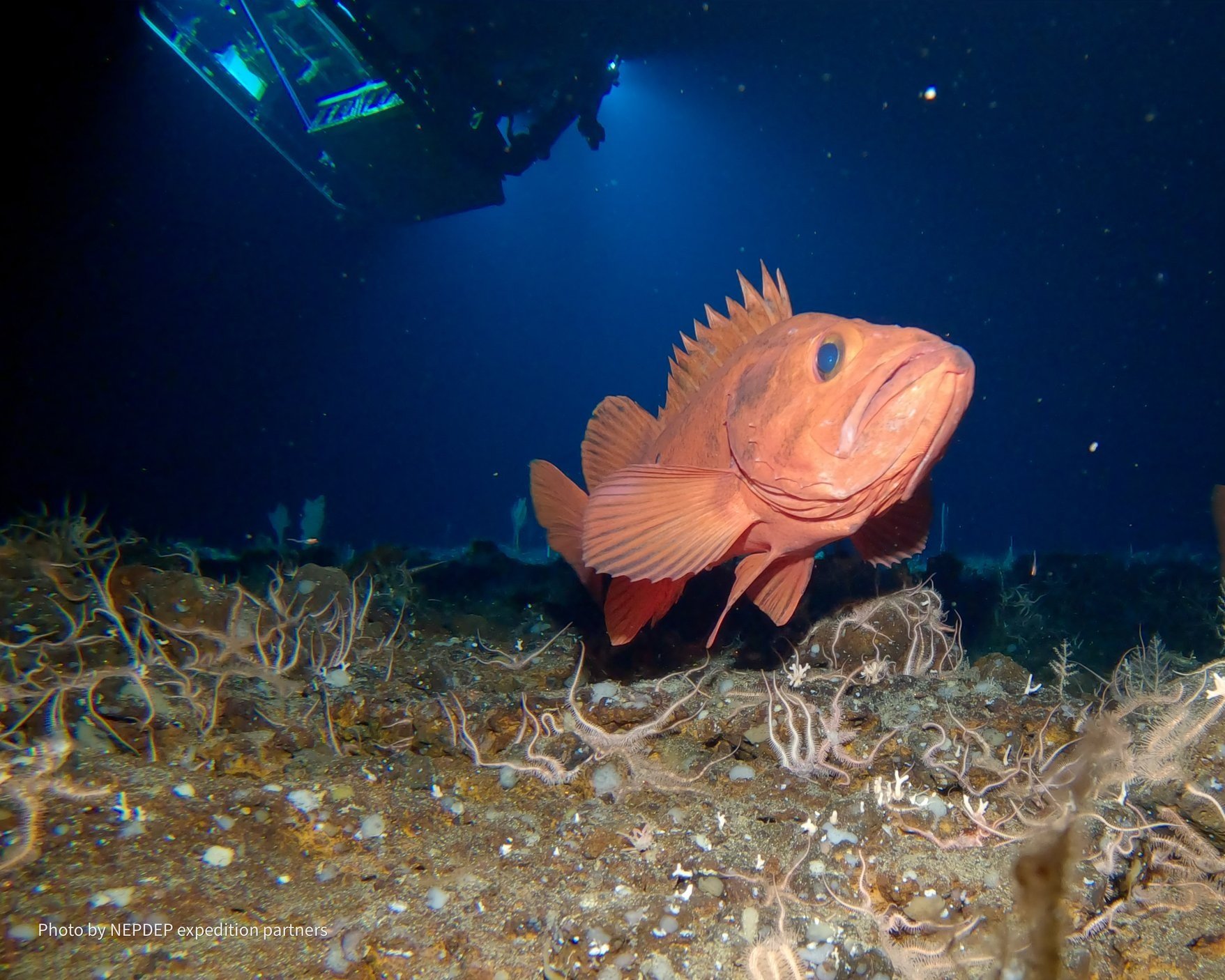
SG̲áan K̲ínghlas-Bowie MPA
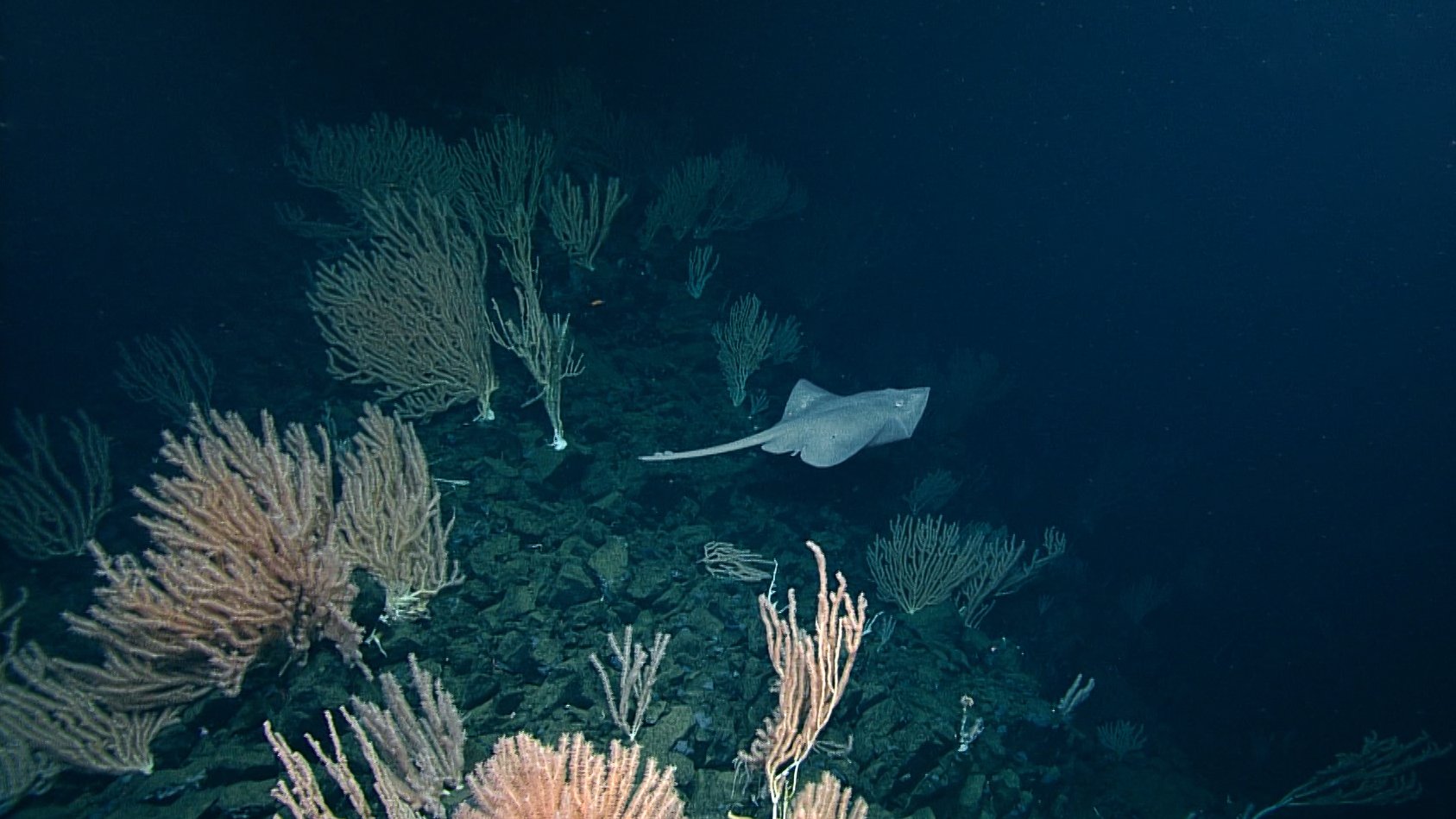
NEPDEP 58 Seamount - Skate Nursery
Study Sites
-
The reefs in this MPA are thought to be over 9, 000 years old! Once thought to be extinct, these incredible habitats are only found in NorthEast Pacific coastal waters. We will be collecting imagery of this southern reef to learn more about its condition and the diversity of the area. Our research also includes taking water samples for eDNA research and cores to better understand the carbon cycle in these incredible areas.
-
We will be exploring deep sites off the west coast of Haida Gwaii that are part of a proposed Marine Protected Area (MPA) Network. The proposed MPA Network in the Haida Gwaii Subregion builds upon decades of work, including work with Elders and Knowledge Holders who participated to the Haida Marine Traditional Knowledge study and through engagement with Haida Citizens, Haida Gwaii residents, and stakeholders. The establishment of Haida Heritage Sites and protected areas continues to uphold Haida Values and Ways of Being.
A network of marine protected areas is a powerful and scientifically proven tool, which will contribute to improving species resilience, restoring abundance and improving ocean health. The proposed MPA Network sites will help to ensure that future generations will inherit the beauty and productivity of Tang.ɢ̲wan the Pacific Ocean.
We will be capturing the first imagery of these deep sites, documenting areas of pristine habitat and areas with suspected bottom-contact fishing.
-
Long before Raven brought light to the world, Supernaturals made their home in the sky, mountains, creeks, shoals and reefs of Haida Gwaii. SG̲áan K̲ínghlas means ‘Supernatural being looking upwards’ in G̲aw Tlagée X̲aad kíl, the Old Massett dialect of the Haida language, this Supernatural being made the seamount its home.
Located over 180 km from Haida Gwaii, the SK̲-B MPA includes three seamounts, their surrounding waters, seabed, and subsoil. The namesake seamount SG̲áan K̲ínghlas-Bowie rises from over 3, 000 m deep to with in just 24 m of the surface! There is an incredible diversity of life that ranges from shallow water species (algae!), deep water organisms, to pelagic fauna using the area as feeding grounds.
The Council of the Haida Nation designated the area as a X̲aads siigee tlʹa damaan tlʹa k̲ing giigangs Haida Marine Protected Area in 1997 and DFO designated it an Oceans Act MPA in 2008. Rooted in mutual respect and shared responsibility, the SK̲-B is co-governed by the Haida Nation and Canada through the SK̲-B Management Board.
Our research will focus on revisiting our long-term monitoring sites to document community differences in a changing ocean.
-
The Haida Nation and Kuuniisii ancestors have strong spiritual and cultural connections with all places and beings in Haida territories. This expedition will go to the NEPDEP 58* seamount, near G̲angx̲id Kun Cape St. James.
This very unique area provides habitats for all kinds of sea life, including an incredible coral garden that we discovered is a nursery ground for at least two different Ts’íit’aa | Ts’iiɢ̲a | skate species! Our final discovery suggested the seamount may have some hydrothermal activity making it slightly warmer than the surrounding water.
Our research will gather more data on the extent of the coral garden and nursery, contribute to a global population study of the Pacific White Skate, and use technology to further explore the hydrothermal flows of the seamount.
*NEPDEP 58 is a placeholder name for an incredible seamount that will be named by coastal First Nations.
August - September 2024
Public Events - Ship2Shore
Deep Sea Conservation Festival
UW Fisheries Science Building, Seattle
3PM AUGUST 25, 2024
Royal BC Museum
Conference Hall RBCM, Victoria (& Zoom)
11 AM AUGUST 29, 2024
Science World
Science World, Vancouver (& Youtube)
1 PM SEPTEMBER 1, 2024
HECATE STRAIT SPONGE REEF MPA
HECATE STRAIT SPONGE REEF MPA
SEAMOUNTS: SK̲-B MPA & NEPDEP 58
SEAMOUNTS: SK̲-B MPA & NEPDEP 58
OFFSHORE HAIDA GWAII AOI
OFFSHORE HAIDA GWAII AOI
At-Sea Team
-
Cherisse Du Preez
Lead Scientist
-

Andy Vanier
Aquatic Science Technician
-

Aidan Schubert
Marine Biologist & Planner
-

Emily Rubidge
Glass Sponge Reef Science Lead
-

Georgia Clyde
Data Manager
-

Ashley Nielsen
Aquatic Science Technician
-

Heidi Gartner
Deep-Sea Biologist
-

Julian Smith
Oceanographer
-

Merlin Best
Sampling Coordinator
-

Toby Hall
Photographer & Videographer
-

K’aayhldaa Xyaalaas
Rayne Boyko
Marine Planner
-

Shelton Du Preez
Photographer & Videographer (BBC)
-

Midoli Bresch
Senior Biologist
-

Rachel Lauer
Marine Hydrogeologist
-

Kil Hltaanuwaay
𝘛𝘢𝘺𝘭𝘦𝘳 𝘉𝘳𝘰𝘸𝘯
MPA Project Manager
The NEPDEP Partners
-

Council of the Haida Nation (CHN)
-
Fisheries and Oceans Canada (DFO)
-
Nuu-chah-nulth Tribal Council (NTC)
-
Ocean Networks Canada (ONC)
-

Royal British Columbia Museum (RBCM)
-

University of Victoria (UVic)
Expedition Collaborators
-

British Broadcasting Corporation (BBC)
-
Burke Museum -Icthyology Collection
-

Canada Biogenome Project
-

Canadian Coast Guard (CCG)
-

Dalhousie University - Seascape Ecology & Mapping (SEAM) Lab
-
GEOMAR Helmholtz Centre for Ocean Research Kiel (GEOMAR)
-

Hakai Institute
-
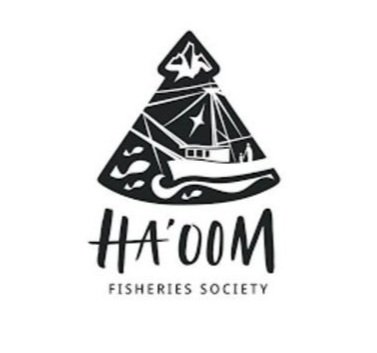
Ha'oom Fisheries Society
-

Natural Resources Canada (NRCan)
-

National Oceanic and Atmospheric Administration (NOAA)
-

ROPOS - Canadian Scientific Submersible Facility
-

University of BC - Keeling Lab
-

University of Calgary (UCal) - Geosciences
-

University of Gothenburg - Marine Sciences
Ocean Deacade Endorsed Project - Under Challenger 150
NEPDEP is an endorsed project of the United Nations Decade of Ocean Science for Sustainable Development (UN Ocean Decade).
We are endorsed under the Challenger 150 programme. Challenger 150 is a global cooperative focused on deep-sea biological research.
Fieldnotes available online:
Fisheries and Oceans Canada post all expedition for the coming year to ensure transparency and promote collaboration. Check out the 99 field operations including the NEPDEP expedtion!
